I love reading and being alone. To me, it’s the best combination to capture new knowledge and explore new ideas to share with others to uplift each other life.
The relationship was one of the toughest life topics for me. It took me years to understand and apply what I learned from readings and valuable conversations that I had with my great friends.
I decided to share these five books because I received many questions about what are my favorite relationship books that had helped me through my difficult hurdles.
These books were personally recommended by my friends who have years of experience with relationships and who have very healthy and happy marriages.
They are my personal secret advisors and they are now yours to discover as well.
Wherever you are in your relationship, these books will guide you through the challenges that you are facing and the questions you have that nobody can’t answer.
Happy reading!
Table of Contents
1. When the Past Is Present: Healing the Emotional Wounds that Sabotage Our Relationships – David Richo
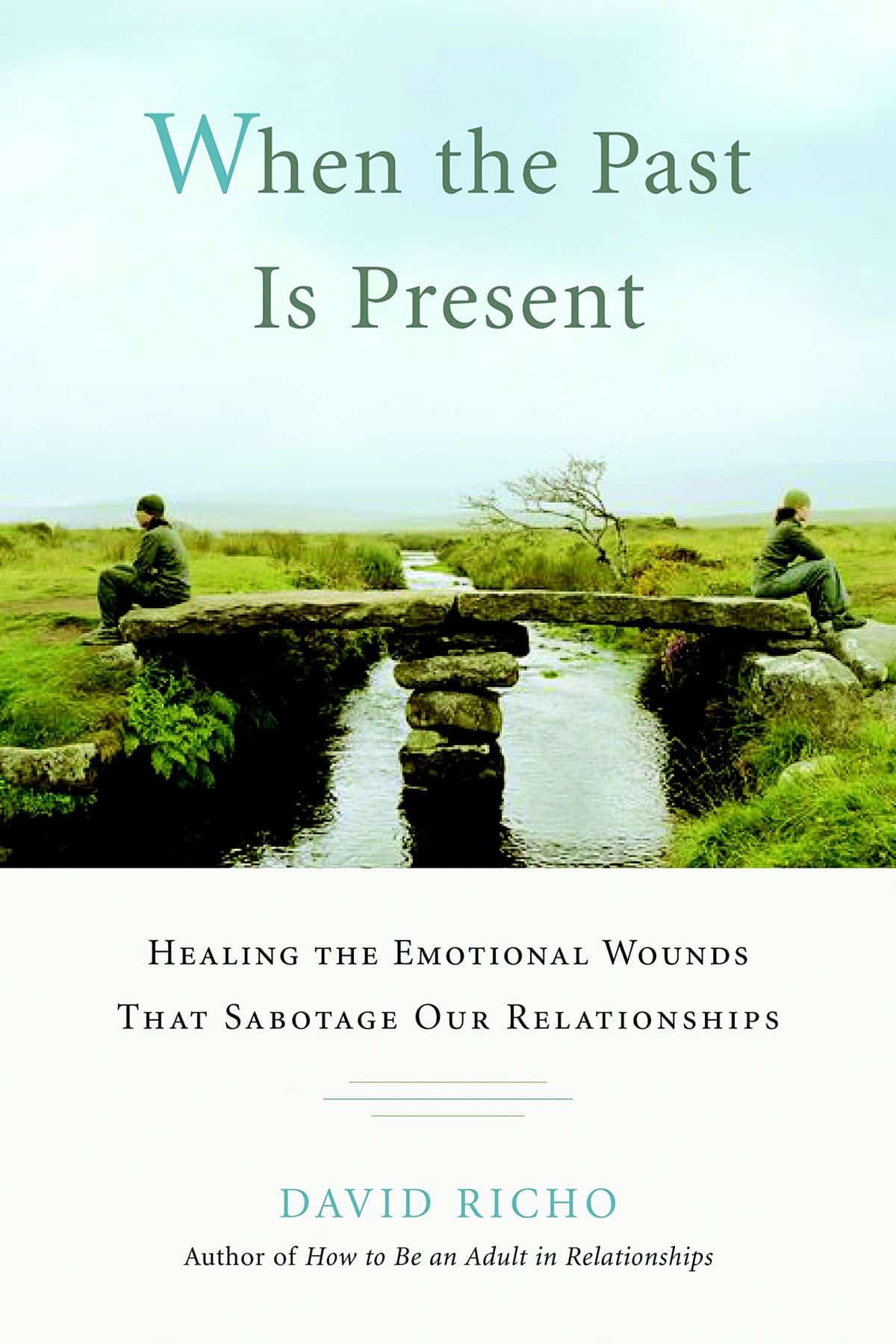
This book helped me a lot in understanding how being stuck in the past can destroy my present relationships. Though it sounds easy (and we know it’s not) it’s quite doable.
I’m proof of that. Having gone through many bad relationships, I decided to put a pause on that part of my life. I decided to study why some can hold on to amazing and healthy relationships while others are struggling.
Being emotionally healthy is having the ability to set ourselves free, free from our past. Regardless of how painful it might be, we shouldn’t allow it to dictate our future happiness.
This book will teach you to explore your deeply suppressed and untold drama, the one that keeps repeating all the same tropes from the days gone by, thus blurring your view of today’s realities and tomorrow’s possibilities. At first painfully, then healingly, When the Past is Present reveals hidden parts of who you are and who you’ve always been, only to make you aware of what you currently need to do.
The premise is simple and relatable:
“We all have a tendency to transfer potent feelings, needs, expectations, and beliefs from childhood or from former relationships onto the people in our daily lives, whether they are our intimate partners, friends, or acquaintances.”
It happens every time your partner reminds you of someone you knew, who hurt you.
It’s also when you decide to pick a fight with your partner because he or she is repeating the same old patterns that caused you to break up with your high school sweetheart.
It can be a mere trifle, something very small and unimportant from your childhood that remained ingrained in your memory – the way your boyfriend shrugs his shoulders when you try to express your feelings or that unconscious little head tilt that makes you hate your girlfriend for no apparent reason.
This odd, yet very natural phenomenon – in psychology known under the Freudian term “transference” – is what hampers our mindfulness and keeps us terribly frozen in the past. Transference tricks us into projecting our own judgments, fears, and desires onto a blameless person.
As remnants of our past relationships, these feelings and beliefs remain an unconscious part of our being that sparks attractiveness and excitement or stirs repulsion and disappointment when triggered by our partners. They are the wounds that must be healed, the baggage that we must try to shake off.
“Our life is a theme and then variations that are never far off from the original tune.”
But this transference, however natural it may be, prevents us from seeing our partners as the people they actually are. Instead, it looks at them and finds those elements that we’re already familiar with, compelling us to see little but our own desires and aversions. It’s a gaze with no clarity or authenticity.
To be aware of your transference is to see another human being without the lenses of your own history, without any obstructions or tropes embedded in your personal drama.
In short, this book will teach you when to let go of your past, accept and forgive what happened to you and that’s when you can start to move toward who you want to be, and attract the right person into your life.
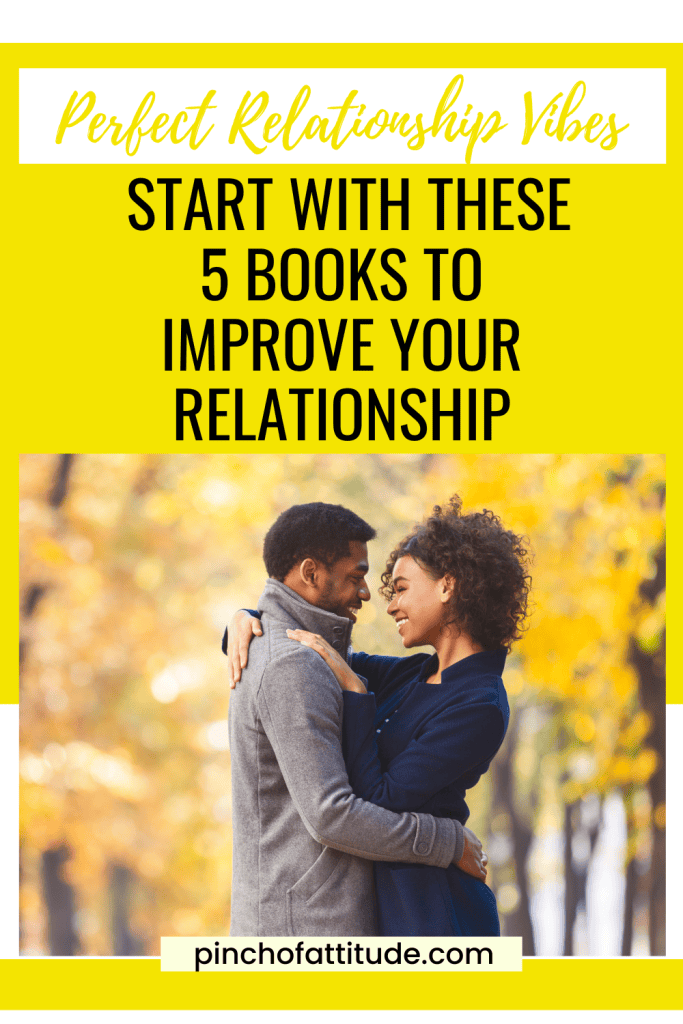
2. Deal Breakers: When to Work on a Relationship and When to Walk Away – Dr. Bethany Marshal
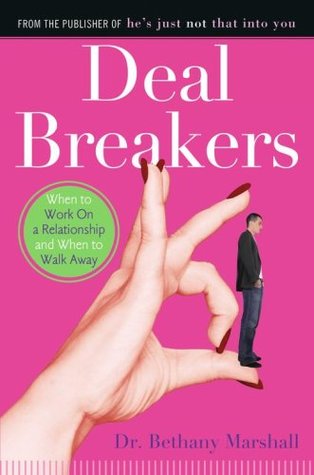
I remember I had millions of questions rushing through my head when I didn’t know what to do in my relationships. Should I leave him? If I do, would it be a mistake? But the one question that I didn’t ask myself was “Will it make me happy?”.
Knowing when to fight and when to flee in relationships will help you tremendously to not be stuck with someone you know for sure you won’t be happy with. This was what saved me, I knew that I wanted out and I knew clearly why.
Deal Breakers was recommended to me by my best friend Rita. To me, it was a guide to understanding that a relationship is a kind of deal that must not be broken.
That’s how Dr. Bethany Marshall sees it, and how we should see it too.
Her book “Deal Breakers: When to Work on a Relationship and When to Walk Away” speaks to all women who are stuck between two options. Though it aims to disclose their emotionally unhealthy men, it remains a much-needed guide that can be applied to both genders and same-sex relationships.
If every relationship is a deal, and it is, then every relationship depends on those few non-negotiable terms that, if broken, chip away from attractiveness, passion, romance, and even love. We call them the deal-breakers and often mistake them for minor disagreements or annoying habits that are normal to have.
But a deal-breaker is something different.
According to Dr. Marshall, it is your partner’s tendency to vilify, devaluate or destroy something you hold precious. As a symptom of a harmful personality trait or a deeper split in a relationship, a deal-breaker is apparent from an early start; it’s seldom something that appears in the heat of the moment.
A deal-breaker is the “tip of the misery iceberg”.
It’s a behavior that damages a relationship and cannot be changed, a dispute that keeps unveiling inconsolable differences in two people’s personalities, or anything else that holds no potential for positive change and undermines the very conditions that make it possible to love, cherish, and respect.
A deal breaker is a line that cannot and must not be crossed, no matter what.
Deal Breakers will help you recognize yours and teach you to discern them from the mundane struggles that every relationship goes through. It will tell you what is worth fighting for, and when it is time to leave. It will prompt you to examine the people you choose and break away from the patterns you repeat.
Reading it made me realize that some people never change. Without ever slipping into radical feminism, it encouraged me to appreciate my needs more and to stand up for what’s important to me. “Deal Breakers” taught me that I don’t have to tolerate everything, not even in the name of love.
If you need to confront your confusion, this book is for you.
If you don’t know where to draw the line, this book is for you.
As Dr. Marshall brilliantly puts it: “Loss can be negotiated, and reputations can be repaired. But life can never be relived. So, make sure you are living it with the right person.”
3. The Five Love Languages: The Secret to Love that Lasts – Gary D Chapman
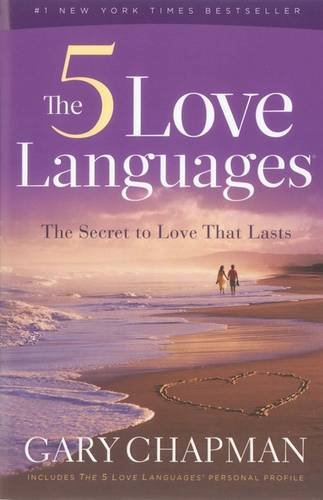
This book was recommended by my colleague and good friend Monica. She told me about how hard her relationship was with her husband at the beginning because of their differences.
She didn’t have the luxury to live with her husband before marriage, so as she put it, they weren’t speaking the same love language. I can totally resonate with that idea while I was living with my then-boyfriend.
This book is worth passing down to your children to read because they too will encounter the same challenges.
This bestseller is considered a bible for people in relationships, though I’d rather call it a dictionary of commonly misunderstood love terms. Words are funny that way – depending on the unique mindset and intimate needs of every person who utters them, a single word can have numerous meanings.
Some words we never speak. There are emotions that cannot be expressed with speech, but only through touch. Others are externalized in a silent language of deep stares or ardent movements. Sometimes you think “I love you”, but tell it with a homemade ravioli, a guitar riff, or a nervous smile.
In Dr. Chapman’s reputable opinion, there’s more than one way to express and experience love. Receiving gifts, quality time, words of affirmation, acts of service (devotion), and physical touch are the five languages of love, each one spoken with a highly individualistic idiolect of a particular person.
On top of that, we all develop one primary and one secondary love language.
So yes, the linguistic combinations of love languages are inexhaustible, and it’s a stark wonder that we are able to understand each other at all. Fortunately for us all, Dr. Chapman’s theory offers a crash course on another person’s language, plus the necessary means for translating the languages we use.
I say, fortunately, because language barriers lead not only to frequent lover’s brawls but also to deeper cracks within a relationship that cannot be easily mended. It’s as frustrating as reading James Joyce and wanting to like him, and as harmful as speaking to someone and refusing to actually hear them.
Do you know how your boyfriend pouts after he’s washed the dishes without you acknowledging the grandiosity of such sacrifice? Well, it’s because he’s expressing his devotion through Acts of Service, a vocabulary that you yourself don’t recognize as a language of love. To you, it’s simply a household duty.
You’re speaking in Quality Time instead, a language he translates to “Let’s watch football together”.
But when you realize that in his vocabulary the mundane act of dish-washing means exactly the same thing that reciting verses from Petrarch’s “Canzoniere” means in your book – and that is “I love you” – the common language is found, and you can understand each other without a single corny word.
And that’s what “The Five Love Languages: The Secret to Love that Lasts” will teach you to do.
Along with a questionnaire for determining a person’s love language, you’ll find tips for observing the way other human beings express their love, devotion, and respect. At the end of the day, isn’t that all we need? A cheat sheet for untangling that intoxicating mystery we call “speaking without words”?
It’s what unlocks hidden dimensions of love and life.
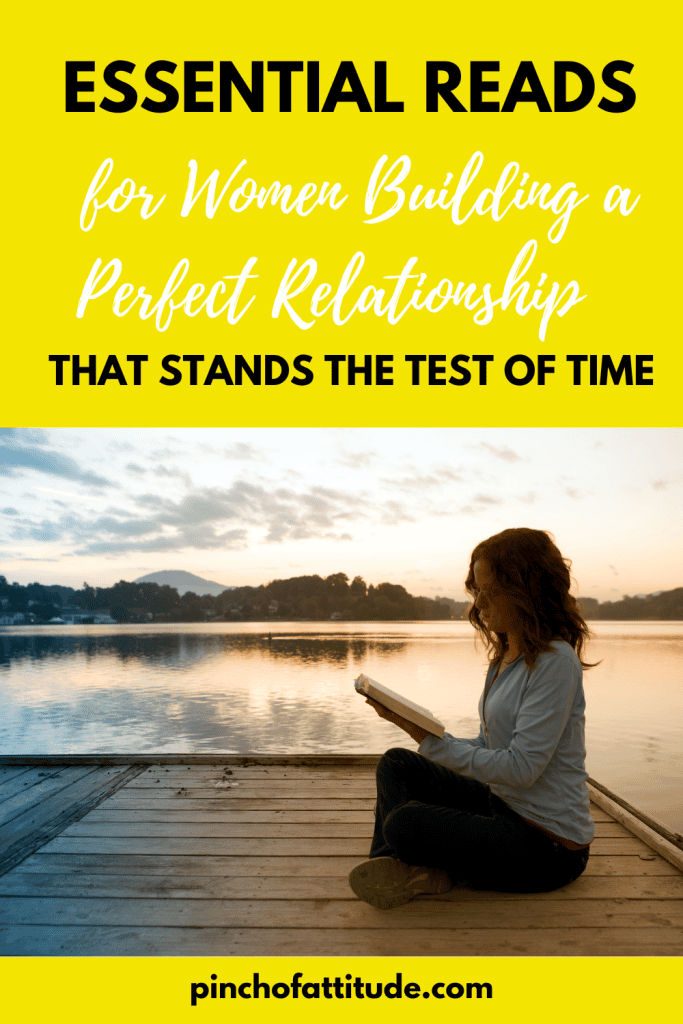
4. Couple Skills: Making Your Relationship Work – Matthew McKay Ph.D. and Patrick Fanning
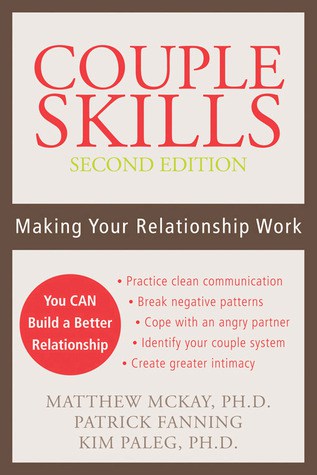
Couple Skills: Making Your Relationship Work came to me through a conversation with one of my great friends. When I turned to her for practical advice on how to resolve a delicate and ongoing conflict in a healthy and definitive way, she gave me a thick book with excruciatingly dull covers and told me: “Here. It’s a repair manual”.
And indeed, it was.
There’s no better way to describe a self-help book that so comprehensively tackles the issues most couples face on a daily basis. If “The Five Languages of Love” is a dictionary of love terms, then Couple Skills is an encyclopedia of relationship struggles. The way I see it, it’s a couple’s therapy transcribed.
Experiencing communication halts? No problem, there’s an entire chapter dedicated to fixing that.
Can’t you cope with everyday troubles? This book will teach you skills to surmount that mountain too.
Has he accused you of failing to accept his emotions without resorting to judgment? Meet your personal acceptance and commitment therapist.
All three authors are experts in mental health, especially when it comes to family and couples therapy, so don’t mistake this book for another self-help title. It’s a diagnostic guide that reveals trade secrets.
Do you know how reading is popularly perceived as a solitary pursuit? Well, the only trick here is that this is not a book that you can read alone. More precisely, it’s not a book that will help fix your relationship if you’re the only one committed to it. No, this one calls for mutual involvement and cross-referencing.
Dr. McKay himself explains it as a workbook, an intuitive reading process that requires you to approach it with a pen and a willingness to take action. “You’ll need to get involved”, as three co-authors instruct, “Do the exercises, keep logs and journals, try a new behavior, risk new responses to your partner”.
Sounds like a huge commitment?
It’s what every relationship is.
Before you ask – yes, you can read it on a beach with a margarita in your hand. “Couple Skills” is a book that has a lot to offer to single people as well, and the fact that you’re not currently involved doesn’t at all mean that you should leave it on a bookshelf. In fact, it’s exactly why you should read it.
Not only will it help you decide what’s important to you in a relationship, but it will also teach you how to put these skills into practice before you commit yourself to another person. Instead of waiting for it to become a repair manual, peruse it now as a primer on how to fix things before they get broken.
And remember – if it feels hard or painful, it only means that it’s healing. What stands as an instruction for reading this book is the best relationship lesson you can learn. After this, you can be a personal advisor to yourself and to your loved ones if they are looking for a healthy relationship.
5. I Love You But I Don’t Trust You – Mira Kirshenbaum
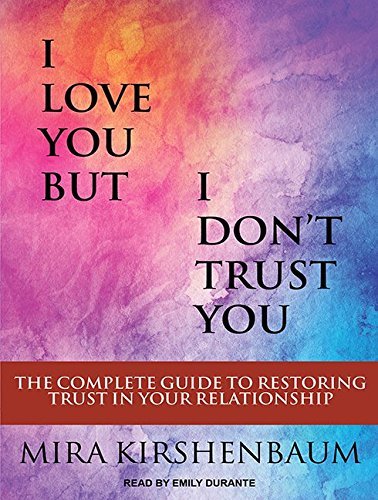
Trust used to be my biggest problem, even though I’m happily married to my husband.
Before my husband, my ex was cheating on me on many occasions. He completely took away my trust. I could neither get over it nor did I know how to rebuild it with my then-boyfriend.
This book was my savior and closed the painful chapter in my relationship, a part of my life.
We’ve already established that relationships are deals, and betrayal of trust is exactly that – a violation of a spoken or unspoken agreement between two people. For some, trust is a non-negotiable term; when shattered, it is a deal-breaker that heralds an end of commitment, respect, and mutual affection.
If that’s you, that’s okay.
For other people, the willingness to change in the name of love implies that broken trust can and should be mended. I Love You but Don’t Trust You is written for those who believe in repairing trust, to guide them through the stages by which trust strengthens when the rebuilding process is allowed to take place.
Entrusting another person with your deepest and most intimate feelings is not possible if that person doesn’t make you feel safe and secure. That’s why rebuilding is crucial for healthy relationships.
But Mira Kirshenbaum doesn’t jump to conclusions, nor does she insist on regaining trust when trust cannot be regained. In an effort to find a justifiable reason behind deception, she simply examines the nature of dishonesty itself. Could it be avoided? Was it from good intentions? How much did it hurt?
Both trust and betrayal are palettes of many colors.
We can even return to Dr. Chapman’s love languages and say that your white lie is your partner’s black lie. Trust isn’t a relative concept, but a person’s readiness to turn a blind eye to minor distortions of truth is highly subjective. It is a matter so delicate and nuanced that it requires a trustworthy guide.
A single lie shouldn’t be able to tear apart an entire relationship. Then again, what if that lie is so big and far-reaching that it’s now forever engraved in the foundation of the life you’ve built as a couple? Should the person responsible for it be punished? Should the other party suffer from unearthing it too?
Digging for lies in a relationship is like opening a box to find out if Schrödinger’s cat is alive or dead, but turning a blind eye is simply fake. All this is to say that Kirshenbaum’s book deals with some truly complicated issues, though it still manages to find practical answers to questions that haunt all of us.
Your takeaway from “I Love You but I Don’t Trust You” will probably be different from mine. Being a huge believer in second chances on one side, and a loud advocate for my own rights on the other, I loved Kirshenbaum’s book for its ability to make a line between right and wrong at least a bit clearer.
Together, these books form a pentalogy of questions and answers that no couple is immune to.
“When the Past is Present” allows you to close a chapter before you open the next one.
In “Deal Breakers”, Dr. Marshall tells you when to put an end to an emotionally draining story.
After that, “The Five Love Languages” will teach you how to write a better one.
As a repair manual, “Couple Skills” will help you fix it if it starts to suck.
Finally, “I Love You but I Don’t Trust You” will disperse all your doubts.
Take them as five stages of the relationship – one for emotional closure, one for moving on, one for starting again, one for practice that makes perfect, and another one for keeping trust.
Hopefully, you won’t need a sixth one.
Unless, of course, it’s a tale of happily ever after.
Related Posts:

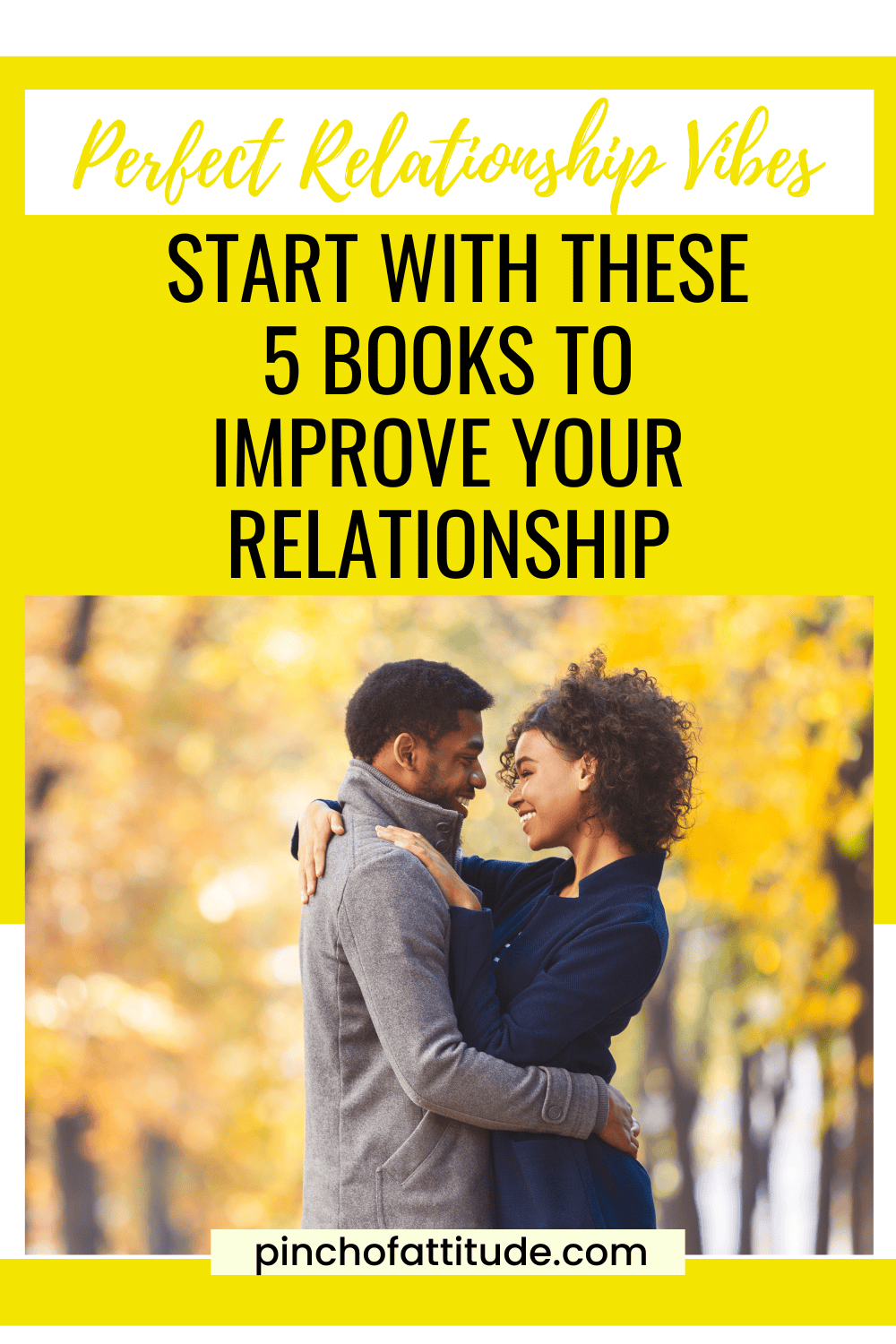
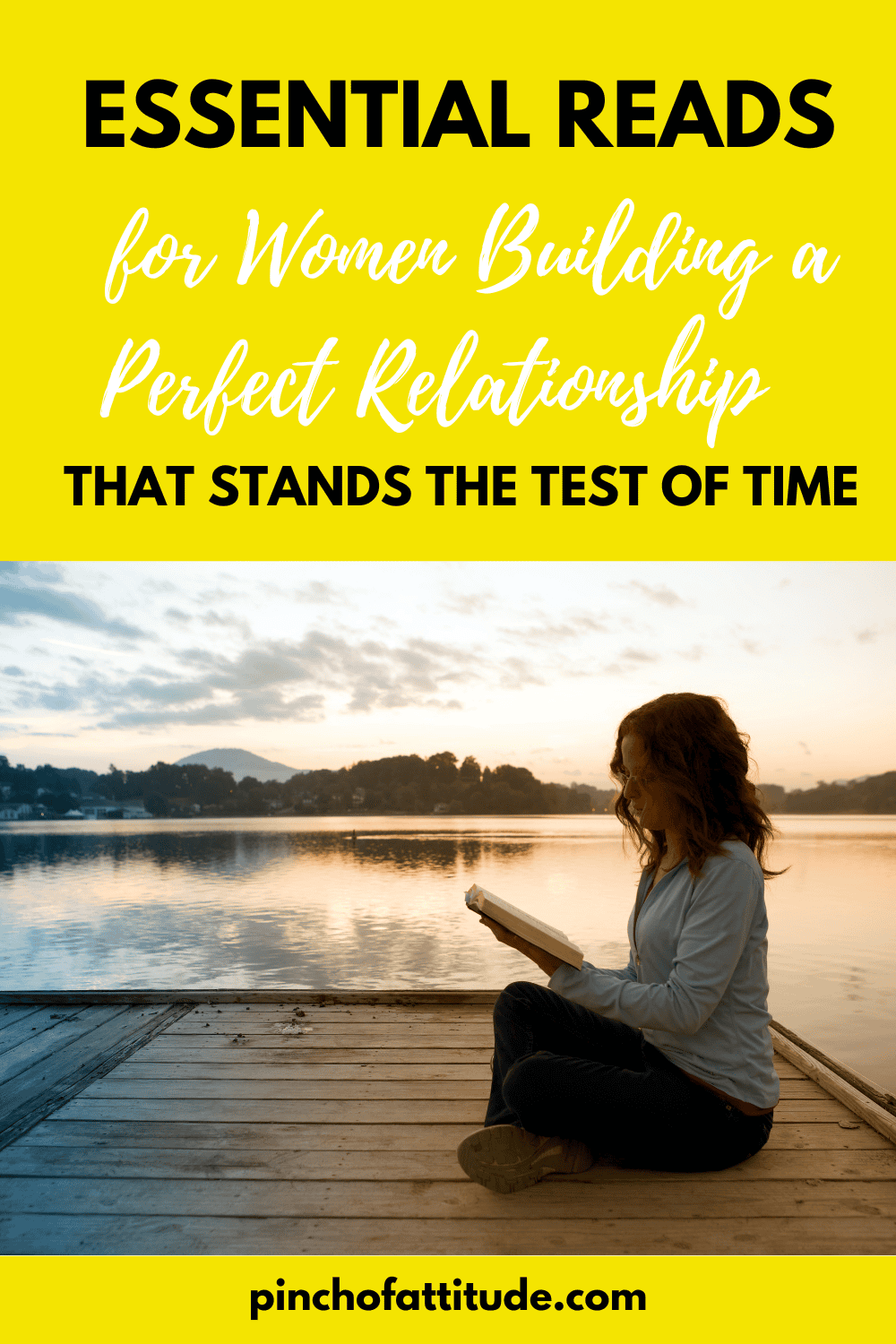


My son is incarcerated. He recently married prior to being arrested. He is struggling with trust and forgiveness. I would like him to be able to read your articles and books but they must come directly from you can you help him,??